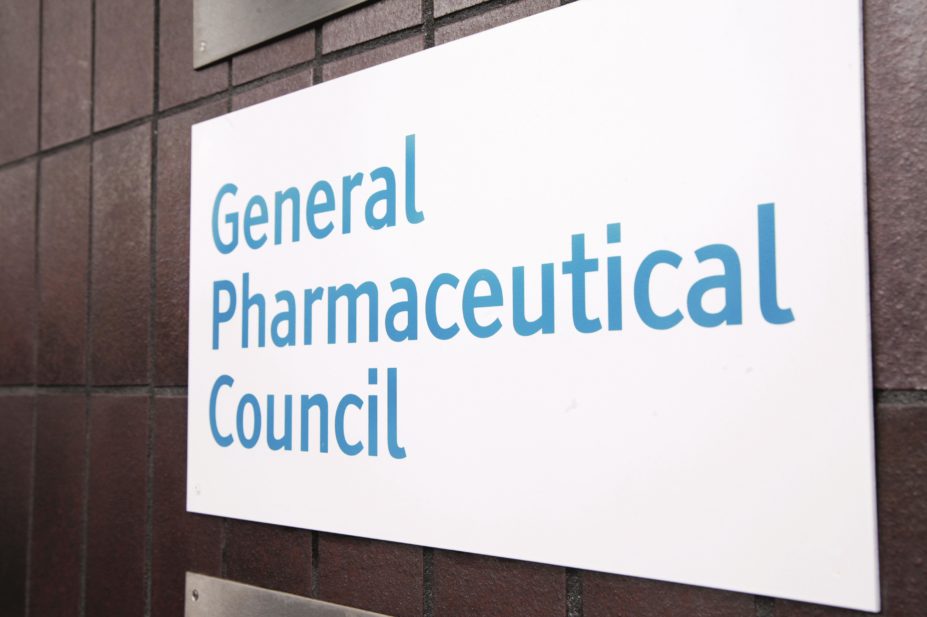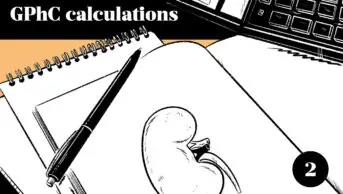
General Pharmaceutical Council
A number of pharmacy graduates who sat the September 2019 preregistration exam have sent “abusive” and “unprofessional” feedback to exam board members, it has emerged.
The comments came from a minority of trainees who ignored protocol and sent their views directly to individual members of the board of assessors, rather than to the professional regulator, the General Pharmaceutical Council (GPhC).
The board was unhappy with both the tone of the comments and that they had been sent to individual members. Its concerns were highlighted in its report into the September assessment exam, which was considered by the GPhC at its meeting on 5 December 2019.
“The board is concerned at the tone of the language used by candidates when feeding back about the registration assessment: on occasions it is unprofessional, at other times abusive,” the report said.
“This is unacceptable and unnecessary. Candidates are reminded that they are professionals in training and should behave accordingly.”
Commenting on this, the British Pharmaceutical Students’ Association (BPSA) said it was important that trainees maintained professional standards — no matter how stressed they may feel about the exam and their results.
Rhys Llewellyn, public relations officer at the BPSA, told The Pharmaceutical Journal: “It’s a stressful time, but we would expect graduates’ feedback to be constructive.”
He said the BPSA was there to help trainees in such times and is interested in hearing their feedback on the assessment exam or results.
The assessors’ report was published alongside an analysis of the exam results by the GPhC, which confirmed continuing trends in pass rates of those graduates who were sitting the exam for the first time.
Trainees who completed their preregistration training in the hospital sector outperformed those who trained in the community, with an 83% and 58% pass rate, respectively, according to the GPhC’s data analysis.
The first-time pass rates of black or black British candidates also continued to be lower than candidates from nearly all other ethnic backgrounds, it found.
This group of trainees had a pass rate of 41%, which was lower than all ethnic groups from Asian or British Asian backgrounds. Only candidates who fell outside of these groups and identified as coming from “any other ethnic group” fared worse, with a pass rate of 36%.
However, the first-time pass rate for candidates who declared as white British was 80%, the analysis revealed.
The results of the June 2019 assessment revealed that 61% of black African trainees passed the assessment, compared with 91% of white British trainees — a gap which had widened by four percentage points since 2018.
Generally, the majority of candidates in the September exam are resitting the assessment; 2019 was no different, with 59% of examinees falling into that category.
But 32% of candidates who sat in September 2019 were taking the exam for the first time — a figure which the GPhC described as “significant”.
Failure to complete the necessary number of training weeks in order to qualify to sit the exam in June was thought to be one reason behind the figure.
“Although we have not analysed the reasons for later starts formally, we know anecdotally that some are due to resitting failed MPharm finals examinations, and others are due to illness or other personal reasons,” the GPhC analysis stated.
However, the regulator is hopeful that the results of a pilot project it introduced in the the 2019/2020 academic year might help to explain why some trainees are starting their preregistration year late.
“We are piloting a new MPharm degree interim visit methodology which places a far greater emphasis on academic progression,” its report said.
A spokesperson for the GPhC told The Pharmaceutical Journal that the pilot involved a new approach to the interim visits it makes to accredit existing Mpharm degrees.
The regulator was hopeful that the new model would allow it to “more closely follow students’ progression through their training and the mechanisms that currently exist and/or could be introduced to support them in their learning,” they said.


